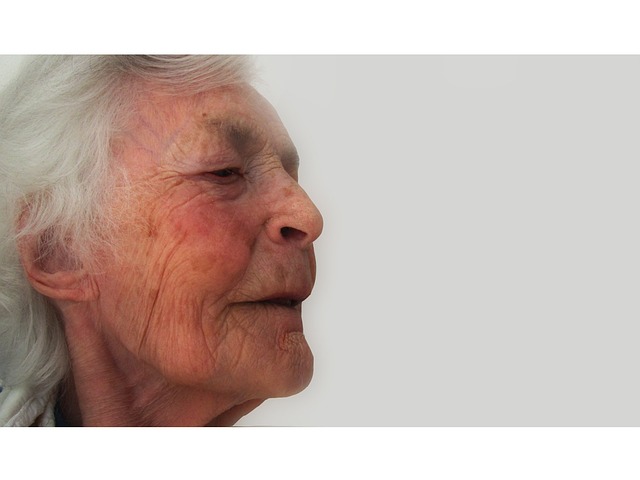Understanding dementia and its prevalence in women
Dementia is a neurological disorder that affects millions of people worldwide, and women are particularly vulnerable to its debilitating effects. Alzheimer’s disease, the most common form of dementia, affects women at a higher rate than men. It is estimated that two-thirds of individuals living with Alzheimer’s disease are women. Understanding the early signs and symptoms of dementia is crucial in order to provide timely intervention and support for women who may be experiencing cognitive decline.
What is Alzheimer’s disease and how it affects women
Alzheimer’s disease is a progressive brain disorder that affects memory, thinking, and behavior. It is characterized by the accumulation of amyloid plaques and tau tangles in the brain, leading to the death of brain cells. Women are not only more likely to develop Alzheimer’s disease, but they also tend to experience a more rapid decline in cognitive function compared to men. This gender difference in Alzheimer’s disease prevalence and progression is not yet fully understood, but it is believed to be influenced by a combination of genetic, hormonal, and lifestyle factors.
Early signs and symptoms of dementia in women
Recognizing the early signs and symptoms of dementia in women is crucial for early diagnosis and intervention. While everyone’s experience with dementia is unique, there are common indicators that can help identify potential cognitive decline. Memory loss is often one of the first signs of dementia, particularly in the form of forgetting recently learned information or important dates and events. Difficulty with problem-solving, planning, and completing familiar tasks may also be early warning signs of dementia. Additionally, individuals may struggle with finding the right words, following conversations, or getting lost in familiar places.
Recognizing cognitive changes and memory loss
Cognitive changes and memory loss are hallmark symptoms of dementia. Women experiencing early-stage dementia may have difficulty concentrating, organizing their thoughts, or making decisions. They may also struggle to recall recent conversations or events, misplacing items more frequently, or relying heavily on memory aids such as notes or reminders. These cognitive changes can be subtle at first, but over time, they can significantly impact daily functioning and quality of life.
Behavioral and mood changes as potential indicators of dementia
In addition to cognitive changes, behavioral and mood changes can also be potential indicators of dementia in women. Individuals may experience increased irritability, anxiety, or depression. They may display uncharacteristic changes in personality, becoming withdrawn or exhibiting socially inappropriate behavior. Sleep disturbances, including insomnia or excessive daytime sleepiness, can also be associated with early-stage dementia. It is important to note that these behavioral and mood changes can be attributed to various factors, so a comprehensive evaluation is necessary to determine if they are indicative of dementia.
Physical symptoms and challenges faced by women with dementia
Dementia not only affects cognitive and emotional functioning but also has physical manifestations that can pose unique challenges for women. Individuals may experience difficulties with motor skills, coordination, or balance, making everyday tasks such as walking or dressing more challenging. They may also struggle with self-care activities, such as bathing or grooming. In later stages of dementia, individuals may become more susceptible to infections, have trouble swallowing, or experience weight loss due to difficulties with eating and drinking.
The importance of early diagnosis and intervention in dementia
Early diagnosis and intervention play a crucial role in managing dementia and improving quality of life for women and their families. Timely identification of cognitive decline allows for the implementation of appropriate support services, medical interventions, and lifestyle modifications that can help slow the progression of the disease. It also provides an opportunity for individuals and their families to plan for the future, including making legal and financial arrangements and accessing support networks.
Treatment options for Alzheimer’s disease and other forms of dementia
While there is currently no cure for Alzheimer’s disease or other forms of dementia, there are treatment options available that can help manage symptoms and improve quality of life. Medications such as cholinesterase inhibitors and memantine can be prescribed to slow down the progression of cognitive decline. Additionally, non-pharmacological interventions, such as cognitive stimulation therapy and occupational therapy, can help individuals maintain cognitive function and engage in meaningful activities. It is important for women with dementia to work closely with their healthcare providers to determine the most appropriate treatment plan for their specific needs.
Coping strategies and support for women with dementia and their families
Coping with dementia can be challenging for both women with the condition and their families. Developing effective coping strategies and accessing support services is essential for managing the physical, emotional, and practical aspects of living with dementia. Engaging in regular physical exercise, maintaining a healthy diet, and participating in social activities can help promote overall well-being and cognitive function. Support groups and counseling services can provide emotional support and a platform for sharing experiences and information. It is important for families to educate themselves about dementia and seek professional guidance to ensure they can provide the best possible care and support for their loved ones.
Conclusion: Raising awareness and promoting dementia-friendly communities
Raising awareness about the early signs of dementia in women is crucial for early detection, intervention, and support. By recognizing the unique challenges faced by women with dementia, we can work towards creating dementia-friendly communities that provide inclusive and accessible support services. It is important to advocate for increased research funding, improved healthcare infrastructure, and enhanced public education to ensure that women with dementia receive the care and support they need. Together, we can make a difference in the lives of women living with dementia and their families.
To learn more about dementia, its signs, symptoms, and available support services, visit https://www.alz.org/.




